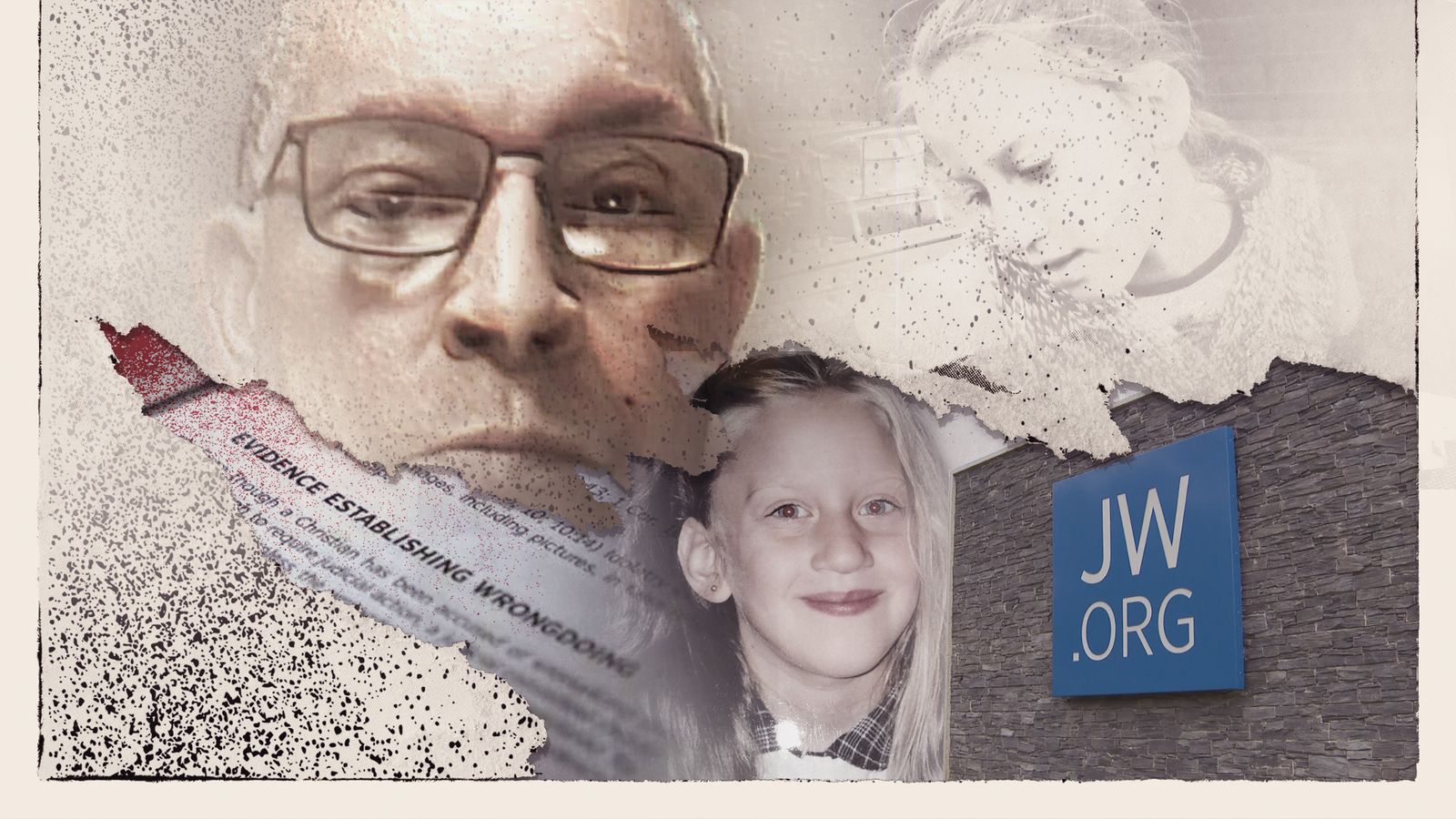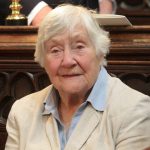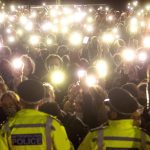“I don’t like the way he touches me.”
That is how Emily described her abuse to elders at the Jehovah’s Witness Kingdom Hall she attended in Loughborough.
Emily (not her real name) was eight-years-old and the man she accused was a ministerial servant in his 60s.
What followed was a series of failings that allowed him to continue abusing children for years to come.
Sky News has spoken to several abuse victims who claim there is a culture within the Jehovah’s Witnesses that fails those looking for help and puts others at risk.
Problems include a failure to report allegations to the police, and a system that requires high levels of proof from the victim, but also allows a repentant abuser to remain within the congregation – at times without other members being told what they have done.
Emily was sexually abused from the age of four – but when she reported the crime to elders in 1990, they did not call the police and told her she had made it all up.
She told Sky News: “There was a phrase that they used a lot which is ‘liars will not inherit God’s kingdom’, which is basically saying you’re going to die at Armageddon, because you’re a liar.”
Jehovah’s Witnesses have a gentle image of people who turn up on doorsteps spreading the word of God. They believe that only people of their faith will be saved from imminent Armageddon. There is a mistrust of non-believers and it is one reason why serious allegations such as child abuse often aren’t taken to the police, but instead handled internally.
Emily said that in her case, the elders – those in charge of governing and disciplining the congregation – held what is called a judicial committee.
She added: “Unbeknownst to me, he admitted it to them.
“And then after that, they continued to tell me that I’d misunderstood it, and continued to tell me that I’d got it wrong, and that I was almost like this crazy person that had made up this disgusting thing.
“There was no kind of reprimand for him. Nothing changed.
“I actually got told off for not sitting on his knee, not talking to him, not being nice to him, not respecting him.”
The abuser, Peter Stewart, was spared being thrown out of the church because he repented and insisted to the elders that there were no other victims. In fact, there were at least four others, including two sisters, who were being abused at around the same time.
For the first time, those sisters are also speaking about what happened.
Amelia, who again is not giving her real name, would not find out until she was an adult that the man who sexually abused her and her sister as children had admitted to another offence and been allowed to retain his position in the organisation.
She told Sky News: “He promised them that he wasn’t abusing any other children at that time, nor had he been. And because they believed him, he was allowed to continue in the congregation and my abuse and my sister’s abuse was allowed to continue.”
Older sister Rachel, whose name is also changed to protect her identity, added: “Knowing that it could have all stopped, that it might not have happened, it could have all gone away, had they taken note of that child that he admitted to. I could have had a few years as a child.”
Amelia didn’t report her abuse until after Stewart went to prison for abusing two other children. When he came out of prison, she revealed her experience to elders in a bid to stop him re-joining the congregation.
She said: “I was begging the elders saying, ‘look, can you not just stop him attending our meetings?’ They wouldn’t listen to me.
“They decided they didn’t believe me because I didn’t have a credible second witness.”
In the guidebook used by elders to deal with serious matters such as child abuse a section reads: “EYE WITNESS – There must be two or three eye witnesses, not just people repeating hearsay – no action can be taken if there is only one witness.”
Incredibly, Amelia wasn’t taken seriously despite the previous conviction, the fact that the church knew of another allegation, and a letter written by Stewart from prison to Amelia’s mother confessing to the crime and calling himself “a pervert”.
Stewart died before a criminal case was brought against him, but Amelia successfully sued the Jehovah’s Witness church for breach of duty in the first successful civil case of its kind.
But this isn’t an isolated case.
There are 8.6 million Jehovah’s Witness members worldwide and 130,000 in England and Wales, with a large central office campus in Chelmsford, Essex.
Activists who are critics of the church claim there is a database of child sexual abuse allegations made against people in the organisation, which is kept at the head office in Chelmsford.
Lloyd Evans, who is a former elder of the church, but left in part because of the way child abuse is handled, told Sky News: “It’s in their own documents, in their shepherd book that they collate this information.
“And it’s in other documents that this information is received at the branch and turned into a database.
“It’s beyond belief to me that the police haven’t already tried to get those documents from Chelmsford.”
The guidebook does indeed tell elders that if the wrong-doing “is not established… the investigating elders should compose a record, sign it, put it in a sealed envelope and give it to the secretary to be placed in the congregation’s confidential file”.
Mr Evans added: “If this was a gym franchise, or a public school and they were keeping records on teachers or gym instructors about these individuals being predators and not passing these on to the police – these institutions would be all over our front pages. When it’s a religion doing it, for some reason everyone treats them with kid gloves.”
In 2016, Australian Royal Commission investigators obtained files the Jehovah’s Witnesses kept on allegations of child abuse there, going back decades.
They found cases of 1,006 alleged child sexual abusers – none had been reported to police.
The guidebook does not discourage people from going to the police, but there is no active encouragement to do so either. This point was recently raised at the Independent Inquiry Into Child Sexual Abuse (IICSA), where a spokesman for the church was challenged on why elders do not get guidance from outside agencies on dealing with child abuse.
Spokesman Paul Gillies responded: “They get the Shepherding The Flock Of God handbook that’s given to elders.
“They would go through that, which is giving them specific instructions about how to handle such matters. So, we do train our elders according to our guidelines and our ways of handling allegations of child abuse.”
It was pointed out by the inquiry lawyer Fiona Scolding QC that in the elders’ statement it said: “If there is a break in, theft, arson or other incident of vandalism, that should be promptly reported to the local authorities.”
Yet there did not seem to be the same instruction with regards to child abuse.
Mr Gillies responded by referring to the church’s Watchtower magazine of May 2019, saying: “Do elders comply with secular laws about reporting an allegation of child abuse to the secular authorities? The answer is yes. In places where such laws exist, elders endeavour to comply with secular laws about reporting allegations of abuse.”
But that doesn’t necessarily translate to helping the authorities, according to another victim Sky News spoke to.
Lacie Jones was abused from the age of 10 by an elder in the Jehovah’s Witness Church. She has waived her right to anonymity to tell her story.
When confronted in 2019, the abuser, Clifford Whiteley, in his 70s, admitted some of the abuse to elders in the West Midlands branch of the church.
Lacie said: “The first thing they said was ‘it’s your absolute right, it’s your absolute right to go to the police’… However, what they don’t tell you is that they will not cooperate.”
She said the elders would not hand over evidence of the confession.
“(It was) because Cliff had told them in confidence, but also in order to be able to speak to the police, they would need to step down from their position as elders,” she said.
“So I waited for at least one to say ‘therefore I’ll step down and whatever…’. Nothing, silence. They didn’t look at me. They were looking at the floor. They were looking at the ceiling. And I just said, ‘but he’s a paedophile’. And again, without looking at me, they just said ‘yeah, we know’.”
Sentencing Whiteley to nine years in prison in April 2020, Judge Paul Farrer QC told him: “You used your religion to convince your victim she was complicit in your wrongdoing and in that way sought to silence her and, sadly, you succeeded for many years.”
But victims we spoke to go further, saying this is part of a deeper problem.
Among the congregation there is a perceived risk of being shunned or even expelled from the church if someone approaches the police or other outside agencies with an issue, meaning that victims are too afraid to come forward.
The organisation’s internal systems simply do not do enough to protect children, while engendering mistrust in outside authorities. This creates the perfect environment for a sex offender to operate.
One of the latest online video messages by a senior member of the church seemed to enforce this point.
David Splane, a member of the governing body of the Jehovah’s Witnesses in the US, warned followers not just to disbelieve the words of people who do not follow the faith, but that those words could be harmful.
He told followers: “If they are the words of apostates, (non-believers) why would we believe them?
“Consider it this way: You have a bottle on your shelf marked ‘poison’ – do you need to open it up and take a swig to see if it really is poison? Believe what the label says.”
He went further, warning against believing news reports and telling followers to be sceptical about court judgements.
He said: “If someone is found guilty by men – it doesn’t mean he is guilty in the sight of God. So brothers, we really have to think about these things.
“In this country and others court cases are often handled by a jury. Now who are on the jury? Ordinary citizens with no legal training, but not only that, these ordinary citizens don’t always have access to all the facts, because the judge and lawyers decide which facts will be shared with the jury.
“So, it’s unlikely the whole truth will ever come out in court. Actually, neither side probably wants the whole truth to come out in court.”
Emily, one of the victims, said: “I think for Jehovah’s Witnesses, they put themselves on a pedestal.
“They call their religion the truth. When you’re within that, you’re in like a bubble. You don’t really have any interactions with the outside world.
“And actually, people that aren’t part of that religion are called worldly, and you’re discouraged from having anything to do with them.”
She added: “You can go to the police, but you know, you’re gonna bring reproach on Jehovah, and actually, you know, some of your family might be upset with you, and they might not talk to you.”
In a statement, Jehovah’s Witnesses said: “When elders learn that someone in the congregation is accused of child sexual abuse, they immediately take steps to ensure the matter is reported to the external secular authorities as may be required by law or if it appears that a child may be in danger of abuse…
“Elders do not shield a perpetrator from the legal consequences of his sin, do not interfere with law enforcement, and leave criminal matters to the secular authorities.
“Any suggestion that Jehovah’s Witnesses cover up child abuse or in any way discourage or frown upon reporting allegations to the secular authorities is absolutely false.
“The Bible requirement of two witnesses is related solely to a religious determination whether the accused should be expelled from being one of Jehovah’s Witnesses.
“Any records kept by Jehovah’s Witnesses in relation to allegations of child abuse are for the purposes of protecting minors.
“If one convicted of child sexual abuse… is later reinstated, restrictions are imposed on the individual’s congregation activities. In addition, elders may inform parents of minors within the congregation of the need to monitor their children’s interaction with the individual.”
The Independent Inquiry Into Child Abuse is due to report its findings on Thursday – whether the flock will be encouraged to believe the conclusions, and whether their elders will act on them, is another matter.






















